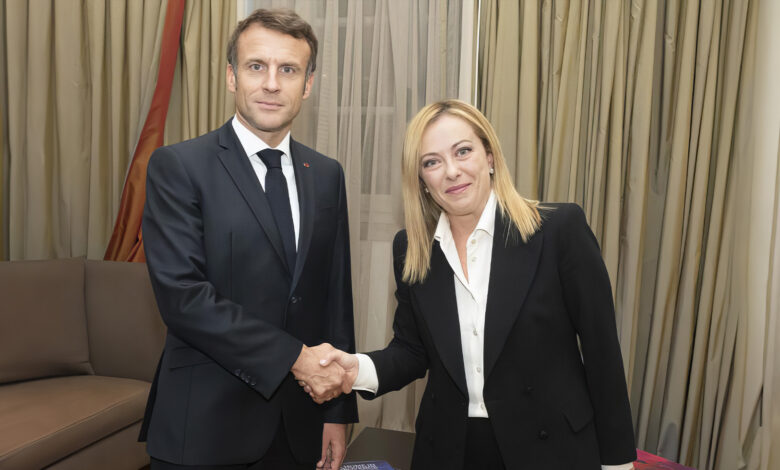European election 2024: Ireland defies Europe’s rightward shift

Ireland is set to buck the trend of European politics, with the majority of the State’s MEPs likely to continue to be from parties of the centre. Joshua Murray reflects on the European elections both in Ireland and abroad.
At the time of writing, voting has finished in Ireland and first preference totals only show the first preference vote in Dublin as well as turnout in Dublin. Barry Andrews of Fianna Fáil has topped the poll in Dublin in 16.5 per cent of the vote, followed closely by Fine Gael’s Regina Doherty on 16.3 per cent of the vote.
The two other seats up for grabs are set to be battled out between Sinn Féin’s Lynn Boylan, the Green Party’s Ciarán Cuffe, Labour’s Aodhán Ó Riordan, and Independent Ireland’s Niall Boylan, while Independents 4 Change incumbent Clare Daly has an outside chance of victory.
Elsewhere, in the Midlands–North-West constituency, independent left-wing candidate Luke ‘Ming’ Flanagan has topped the poll and will likely be re-elected, while Fine Gael is hopeful of winning two of the five seats up for grabs in the constituency. Sinn Féin stands a chance of winning a seat, but it is possible that neither Chris MacManus nor Michelle Gildernew will be elected. Fianna Fáil is hopeful that at least one of its three candidates is elected here, with Barry Cowen having secured the highest number of first preference votes out of the Fianna Fáil candidates.
In Ireland South, where five seats are up for grabs, Fine Gael’s Seán Kelly has topped the poll and been elected while Fianna Fáil’s Billy Kelleher is polling closely behind and is expected to secure a seat. The remaining seats are set to be fought out between independent Michael McNamara, Sinn Féin’s Kathleen Function, Independents 4 Change incumbent Mick Wallace, Green Party incumbent Grace O’Sullivan, Fine Gael’s John Mullins, and Fianna Fáil’s Cynthis Ní Murchú for the three remaining seats.
Across Europe, the European elections have been characterised by a swing to the radical and far-right. While populist right-wing candidate Niall Boylan stands a chance of winning a seat in Dublin, there is no significant swing to the right likely to materialise in Ireland in this election, with far-right parties obtaining derisory votes.
Overall, Fine Gael and Fianna Fáil are both likely to win seats in each constituency and one will emerge as the victor of the election. Sinn Féin is in the running in all three constituencies but could find itself squeezed out in the Midlands–North-West and South constituencies, while the Green Party and Independents 4 Change incumbents battle to retain their seats.
As with the local elections, there has been a low turnout for the European elections, with overall turnout at 50.3 per cent. However, the fact that Fine Gael (which is hoping to win its fifth consecutive European election) and Fianna Fáil have been the two strongest parties will be seen as a vote of confidence in the Government.
Europe swings rightward
Across the EU, the broad radical right, among which there are some far-right parties, have been garnering significant levels of support, while centre-right parties have also performed strongly. However, President of the European Commission, Ursula von der Leyen looks set to have a pathway to remain in charge, with the centre-right/Christian democrat European People’s Party (EPP) emerging as the largest group in the parliament, and the option of either a new ‘grand coalition’ with the Party of European Socialists (PES) or a right-wing coalition with the radical right European Conservatives and Reformists and Identity and Democracy groups.
Most prominent among the success of the far-right has been in France, where the Rassemblement National, Marine Le Pen’s party formerly known as the Front National, has recorded 32 per cent of the vote and comprehensively outpolled President Emanual Macron’s liberal L’Europe Ensemble group. With the prospect of a far-right government in France, Macron has taken the bold decision to dissolve the National Assembly and challenge the far-right to defeat his party in a general election.
The results have also had ramifications in Belgium, where the Prime Minister Alexander De Croo has resigned after his moderate Flemish nationalist party recorded just 6 per cent of the vote while right-wing nationalists in Flanders and Wallonia emerged victorious.
Other countries where the radical and far-right has polled strongly include Austria, Italy, Greece, and the Netherlands.
While the rise of right-wing populism in Britain led to the UK’s withdrawal from the EU, it is unlikely that this phenomenon will be repeated throughout the rest of the continent. What could emerge, however, is a loosening of support for some of the EU’s core values, such as open borders and the eurozone, with the bulk of far-right support emanating from anti-immigration sentiment.
Populist politics has flickered in Ireland on the left and right, but in the rest of Europe it has taken a firm hold and is now a dominant themes in many European democracies, meaning that a significant period of flux is to come in European politics.
This issue of eolas Magazine went to print on 11 June 2024.





